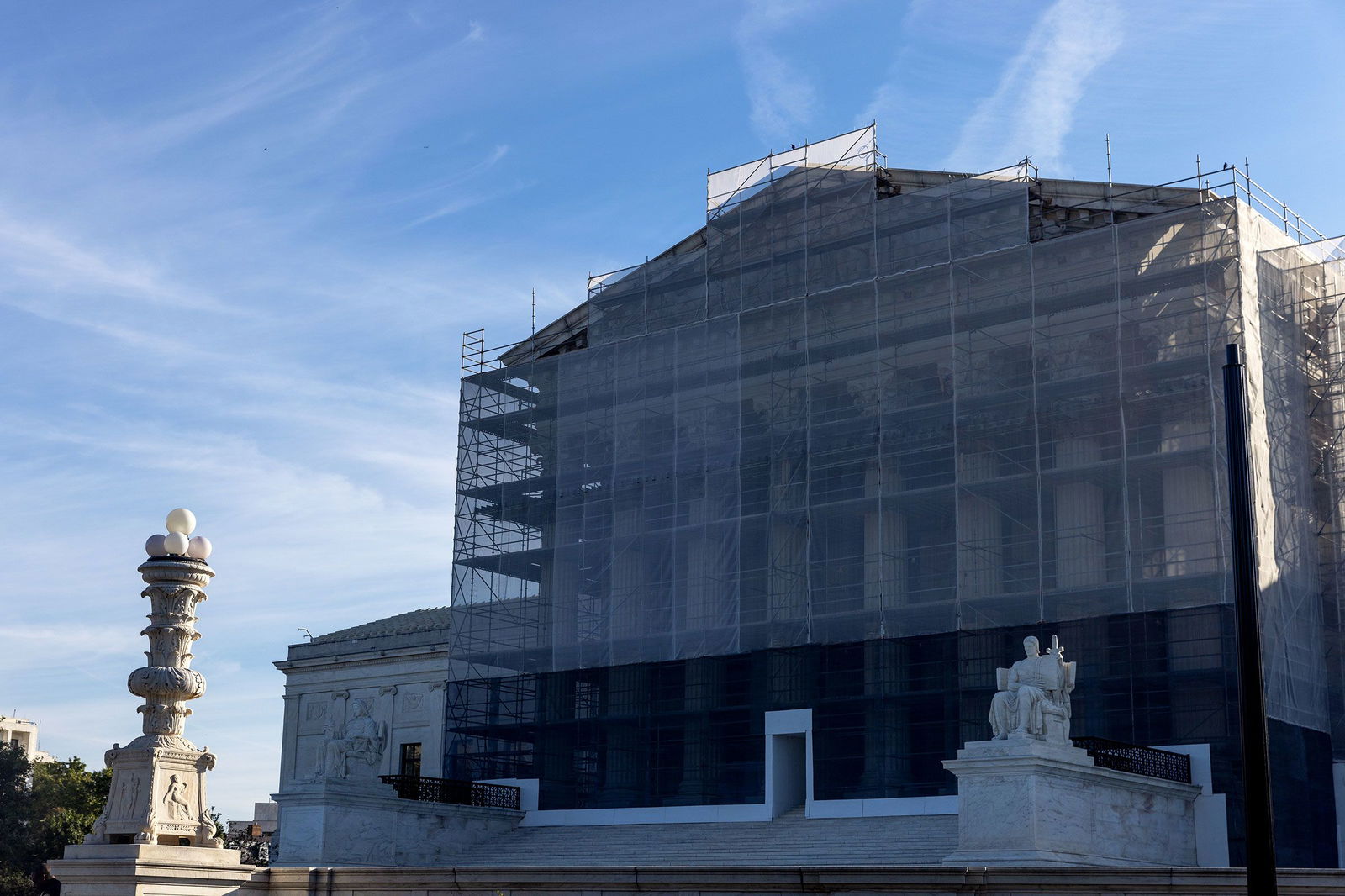Supreme Court wants more time and information before deciding if Trump can send National Guard to Chicago

Pictured is the US Supreme Court building in Washington
By John Fritze, CNN
(CNN) — The Supreme Court on Wednesday took the rare step of asking for additional briefing in a high-profile, emergency case challenging President Donald Trump’s deployment of the National Guard to Chicago, questioning whether those troops can be used under the federal law at issue to augment immigration officials.
A federal court earlier this month blocked the deployment, and in a signal that the Supreme Court isn’t in a hurry to rule, the justices indicated they won’t decide the case until at least November 17.
The new question may be a bad sign for Trump, whose lawyers argued that under an 1827 precedent, courts don’t have jurisdiction to review a president’s decision to call up the guard. Instead, the justices appear to be debating one of the administration’s more nuanced justifications for the deployment.
“Although we can’t know for sure, the order certainly seems like a bad sign for President Trump,” said Steve Vladeck, CNN legal analyst and professor at Georgetown University Law Center. “There would be no need for the Supreme Court to ask the parties to address this question if five justices had already agreed to vote for the federal government on one of the other two possible grounds.”
The order comes as multiple courts have been reviewing deployments to other cities – most notably, Portland, Oregon. In that case, the full 9th US Circuit Court of Appeals said this week that it will re-review a decision in Trump’s favor.
The call for additional written arguments is almost certainly a response to a brief submitted in the case by a Georgetown University Law Center professor, Martin Lederman, who suggested the law Trump is relying on to deploy the Guard to the Chicago area doesn’t apply to civilian law enforcement agencies like Immigration and Customs Enforcement.
Rather, Lederman argued, the National Guard can only be called forth under that law to augment regular military forces. In its order Wednesday, the Supreme Court asked the Department of Justice and officials in Illinois to address that very issue in a series of new briefs due through mid-November.
Trump has argued that calling up the guard is necessary to confront protesters at an ICE facility outside Chicago that he has claimed are engaged in “coordinated, violent opposition to the enforcement of federal law.” He has relied on a federal law that allows a president to take that action if he is “unable with the regular forces to execute the laws of the United States.”
Throughout the litigation, Trump has argued that the protestors are impeding ICE operations. Therefore, he has claimed, ICE has been unable to execute federal immigration laws.
But Lederman dropped a new twist into the case with a brief earlier this month: When the law refers to “regular forces,” he said, it meant the regular military, not civilian law enforcement agencies like ICE.
“There can hardly be any question that the term ‘the regular forces’ in the 1908 Act…referred to the standing, professional military forces, who were commonly known as ‘Regulars,’” Lederman wrote. “The effect of the law was to prescribe the National Guard as the ‘second line of defense, as a supplement to the regular army.’”
Now, both the Trump administration and local officials in Illinois will file a series of briefs debating that issue.
In the Chicago case, Trump federalized 300 members of the Illinois National Guard earlier this month to “protect officers and federal property” outside of Chicago. Another 400 federalized members of the Texas National Guard were also deployed to the state. The administration said those guard members would serve “solely in a protective capacity” and would not engage in law enforcement.
To make its case for the deployments, the Department of Justice has relied heavily on a Supreme Court decision from 1827 – Martin v. Mott. The case dealt with Jacob Mott, a member of the New York militia who disobeyed President James Madison’s order to mobilize during the War of 1812.
The Supreme Court rejected Mott’s argument that Madison had misjudged the danger and wrote that “the authority to decide whether the exigency has arisen belongs exclusively to the president.”
This story has been updated with additional details.
The-CNN-Wire
™ & © 2025 Cable News Network, Inc., a Warner Bros. Discovery Company. All rights reserved.



